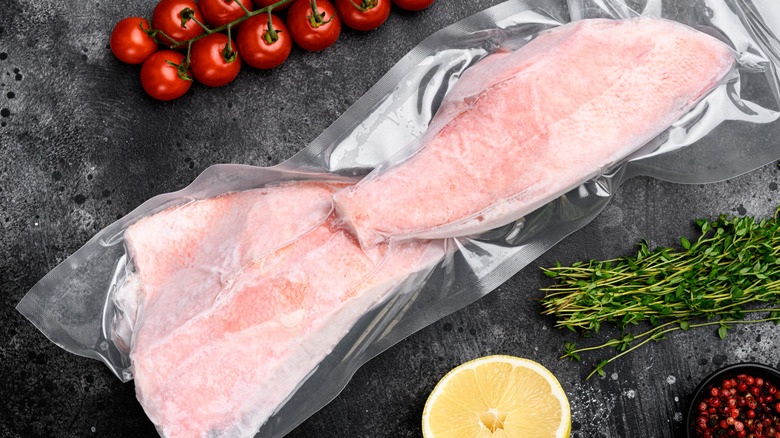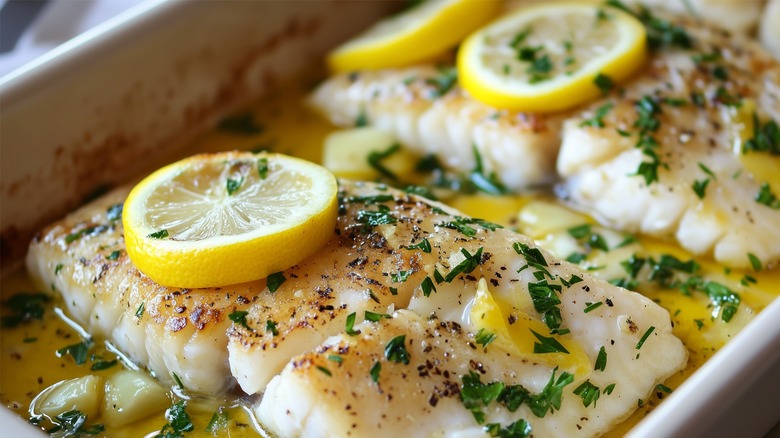The Correct Way To Cook Frozen Fish To Avoid A Mushy Mess
Frozen fish is a protein often overlooked in favor of things like beef and chicken. However, there is no shortage of delicious and inexpensive fish that can quickly turn a meal into something mouthwateringly irresistible. Unfortunately, one of the most likely reasons people often avoid fish in favor of other frozen meats is that cooking frozen fish can quickly become a mushy and unappetizing nightmare if it's not done correctly. Thankfully, it is possible to turn frozen fish into a juicy and tender meal, and the process isn't complicated at all!
The key to saving frozen fish from a mushy fate is in the thawing process. You see, frozen fish is packed with moisture, which will seep out during cooking if it isn't thawed and patted dry beforehand. This moisture is what causes fish to take on an unpleasant texture. While there are ways around this, the best (and simplest) method to avoid this is to thaw the fish properly first. Now, it's recommended to defrost your fish overnight in the refrigerator, but if you need it thawed in a hurry, rinsing the fish under cold water will help it defrost quickly and safely.
If your fish isn't completely thawed out, it can still be cooked just fine, but it's best to avoid trying to pan sear it, as the extra moisture will prevent the exterior from properly browning. If you're really short on time and can't thaw your fish at all, there are still plenty of options for cooking it; you just have to be a bit creative.
Embrace the moisture when cooking frozen fish
There are many reasons why frozen fish can be better than fresh fish, even though cooking it requires a bit of finesse. When cooking a completely frozen piece of fish, the key is to embrace methods where the excess moisture isn't going to impact the texture and flavor negatively. Methods like poaching, steaming, baking, or broiling are the best for this. Baking and broiling, especially, are perfect for removing excess moisture through evaporation. With the moisture removed, there's a greater chance for the fish to be able to brown. Likewise, steaming helps preserve the flavor of the fish, and the excess moisture won't affect the process. The same goes for poaching, where you could even add a little white wine into the mix to create a truly luxurious meal.
Now, there are a lot of mistakes you can make while cooking fish, especially from frozen, so it's important to keep an eye on things. While frozen fish will take roughly 50% longer than thawed fish to cook, you don't want to heat it for so long that it overcooks. The temperature of fish should be at least 145 degrees Fahrenheit when fully cooked and it should easily flake apart with a fork. In general, add 12 to 15 minutes or every inch of your frozen fish's thickness for it to cook all the way through. Just make sure to watch the fish closely during that time, especially if you're using a thinner fillet that will cook more quickly.

